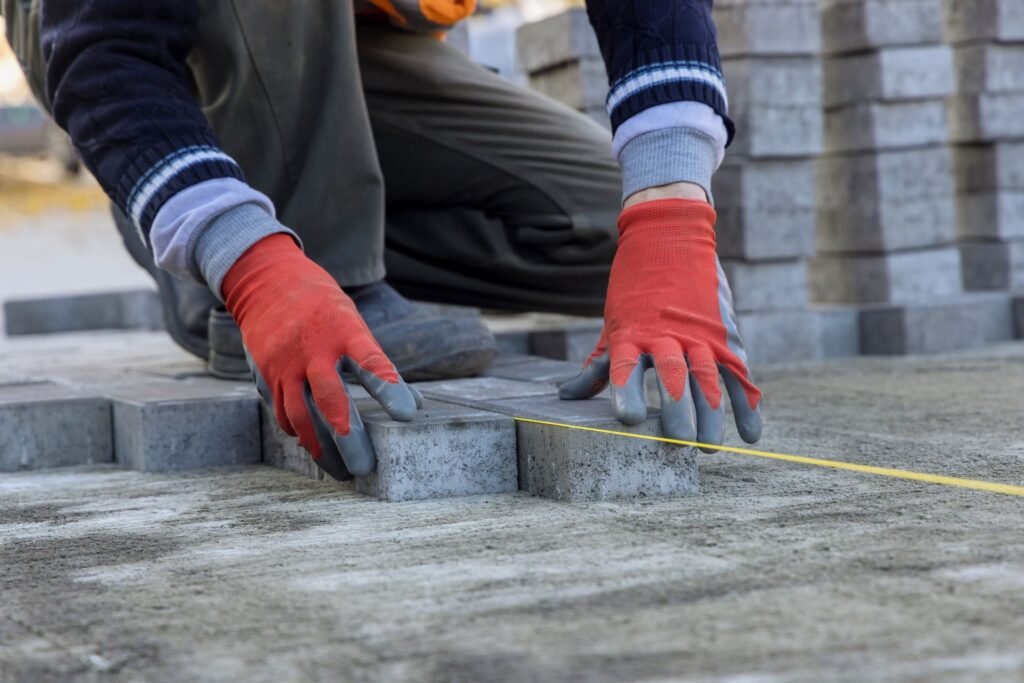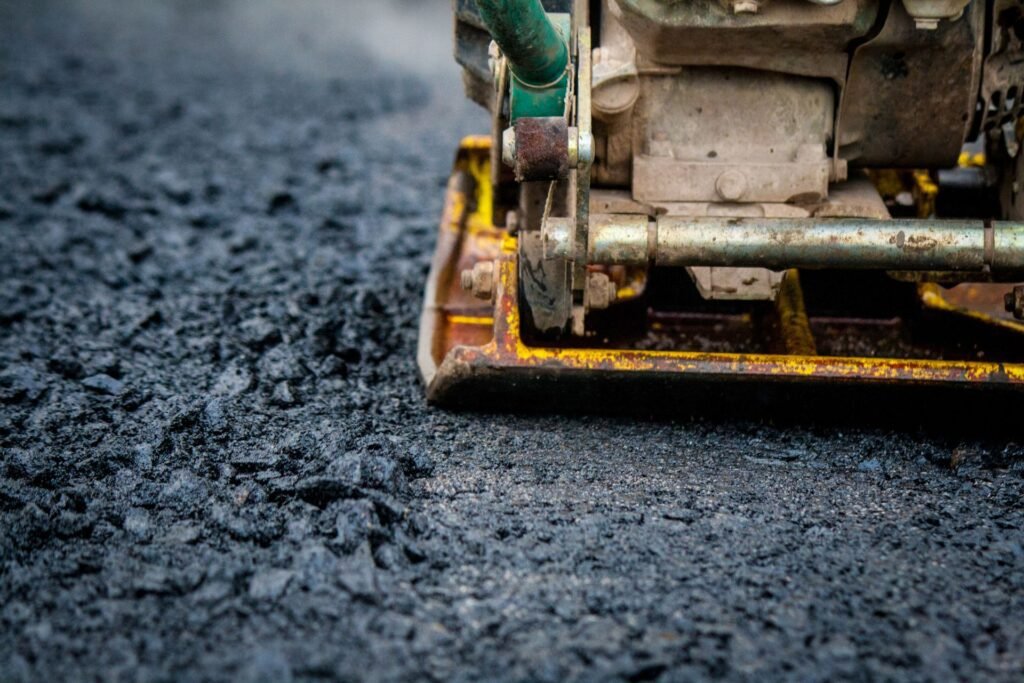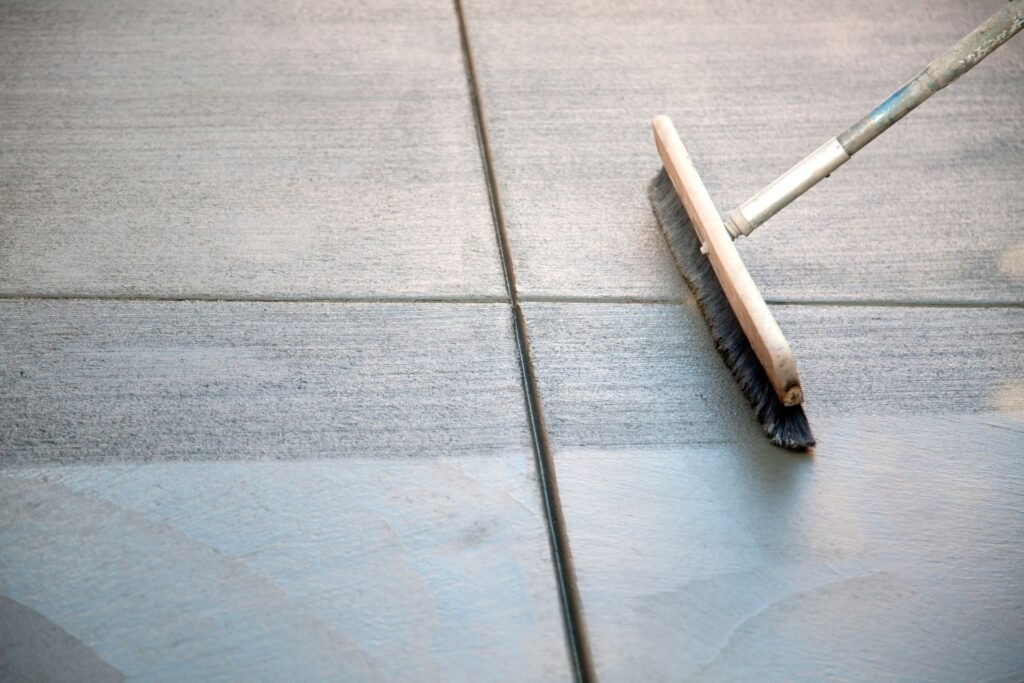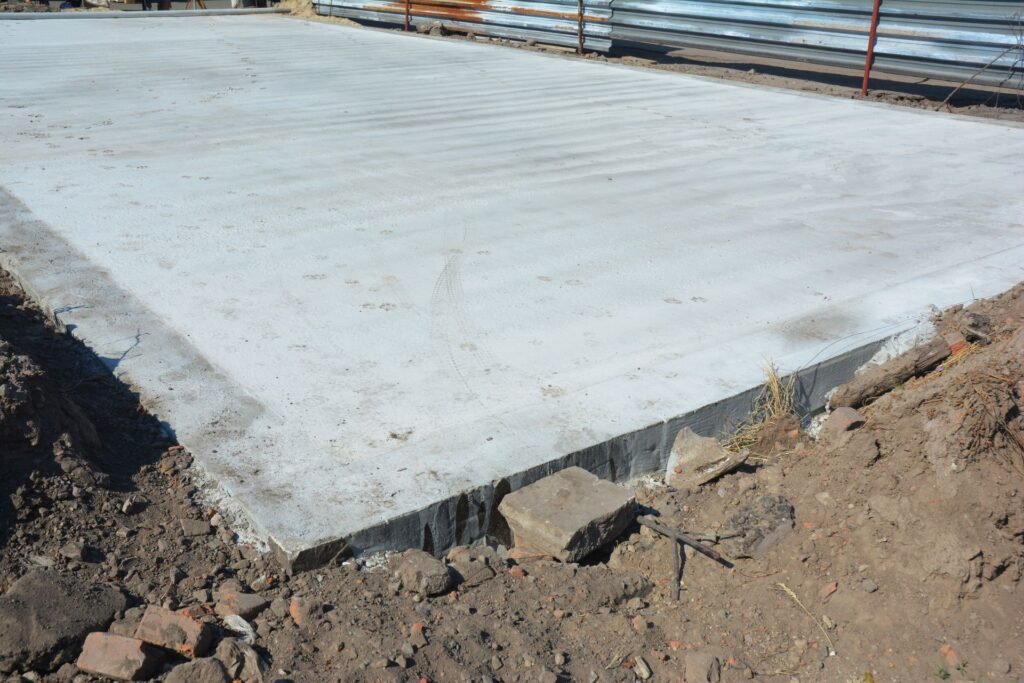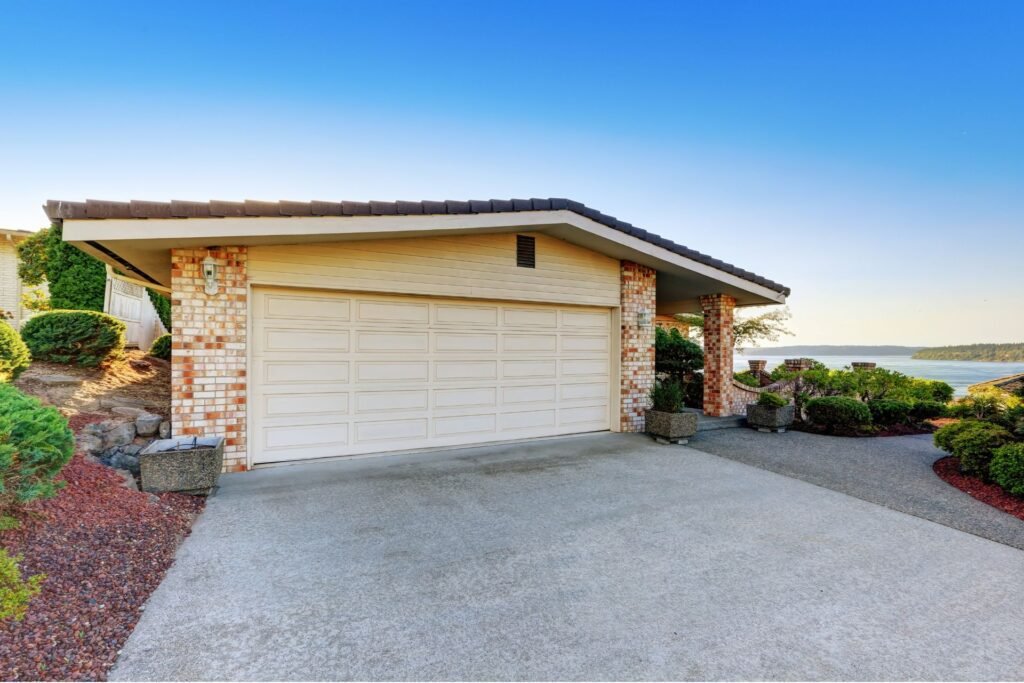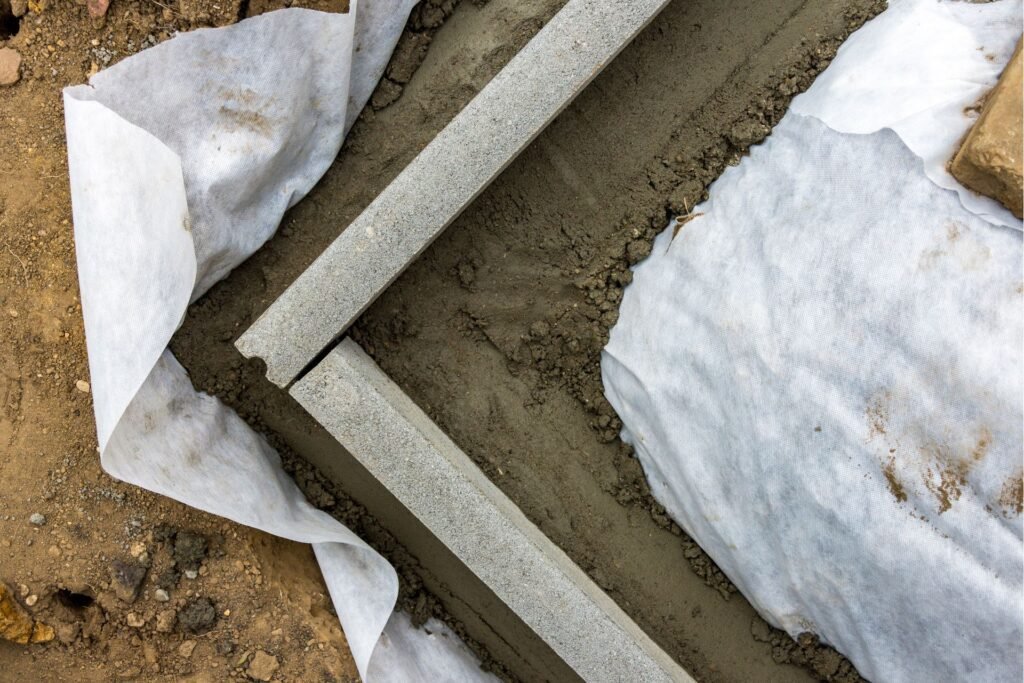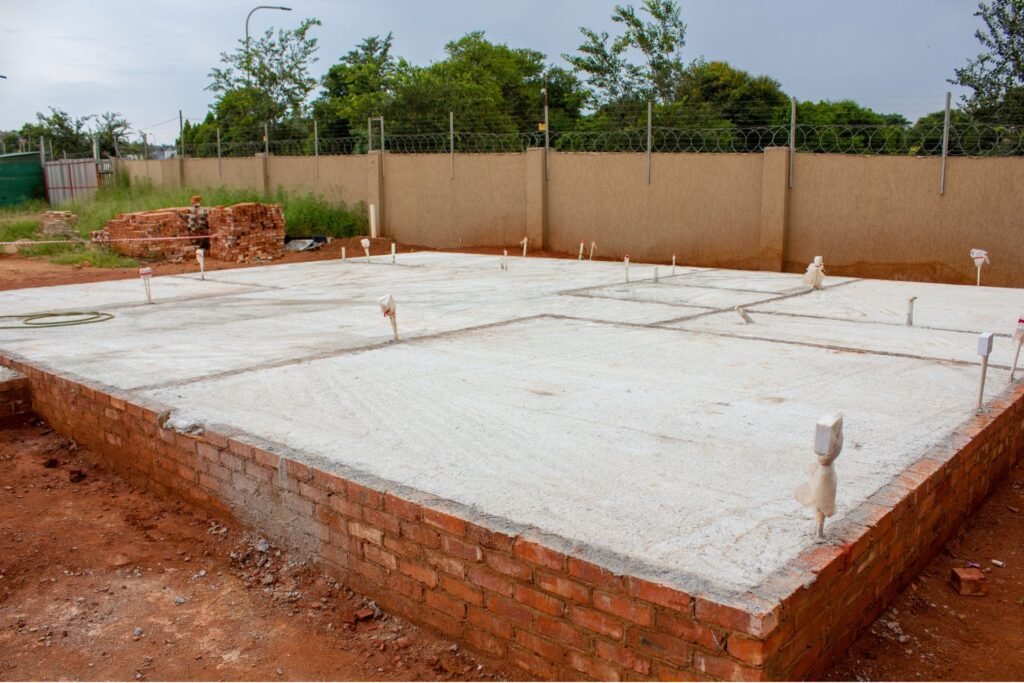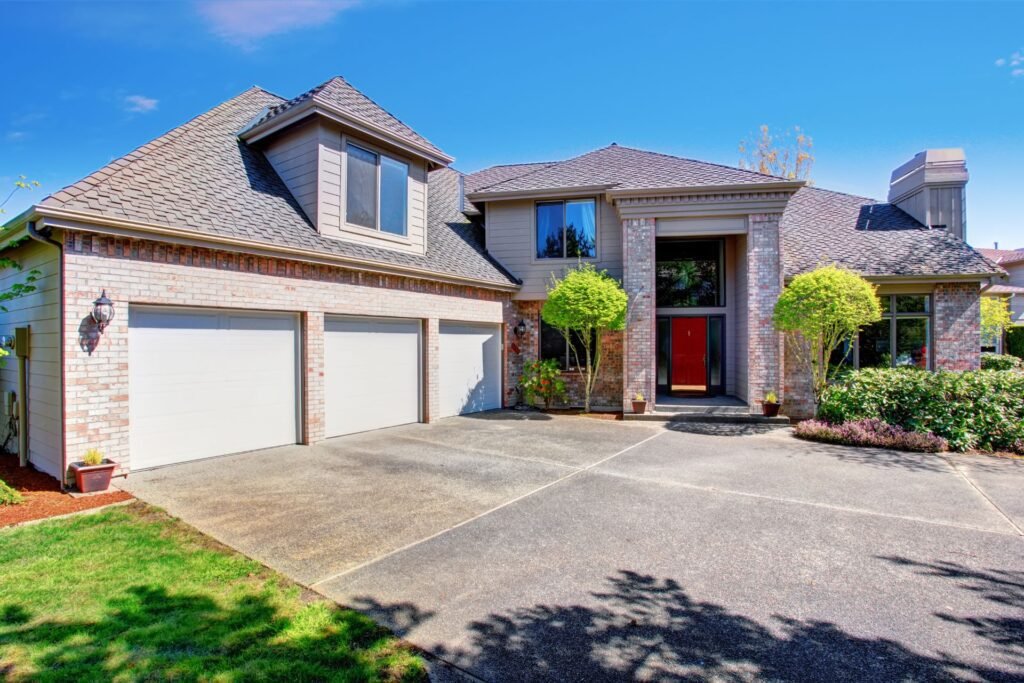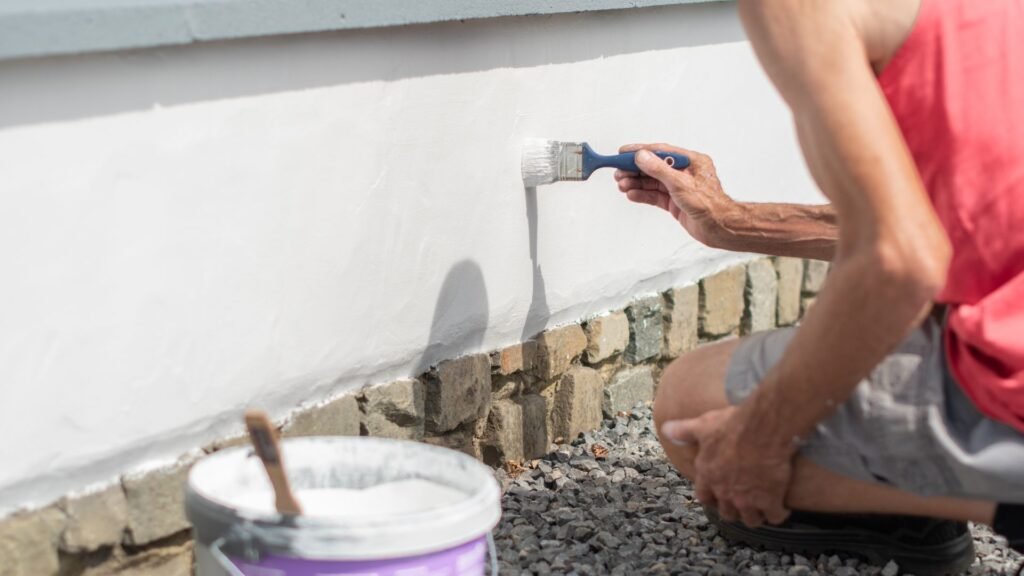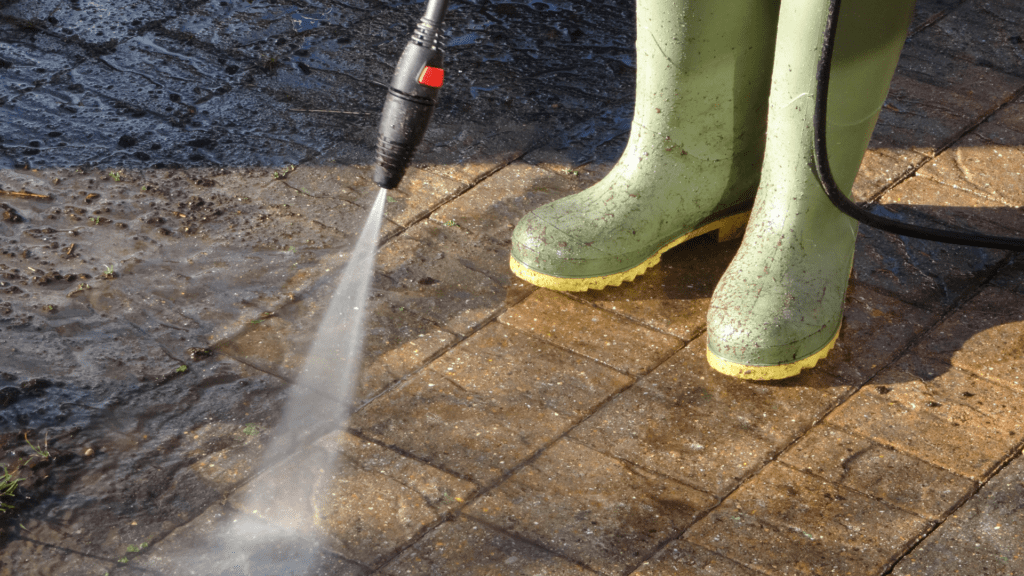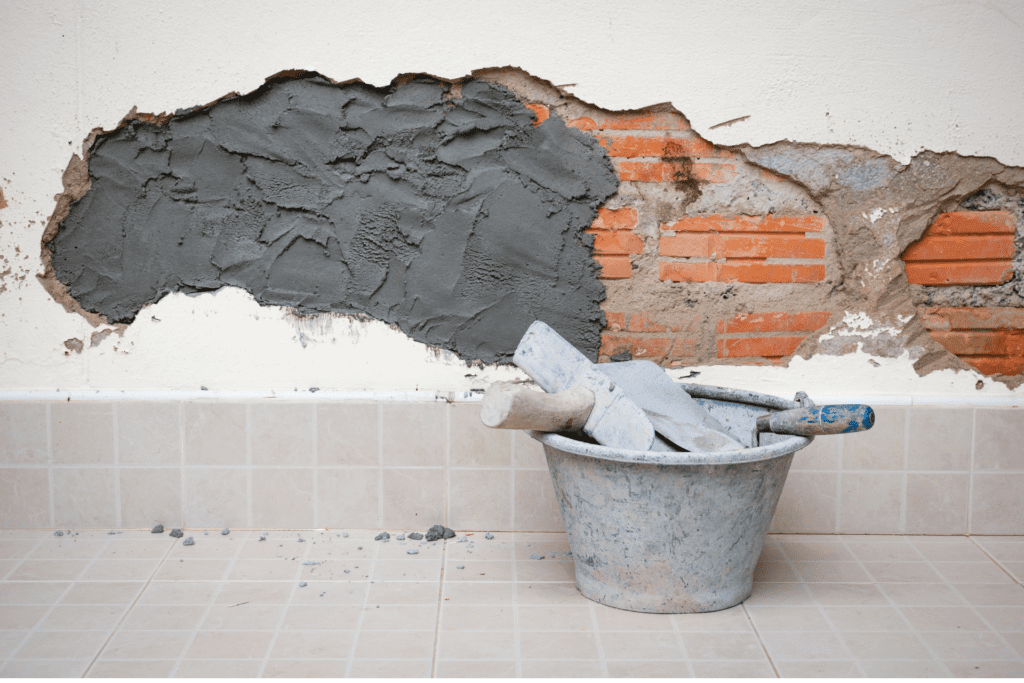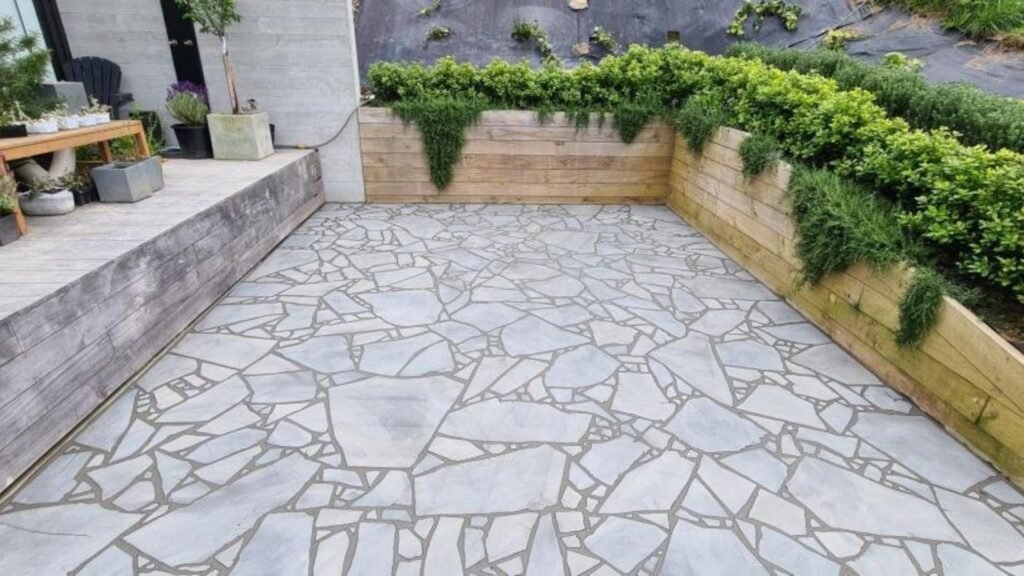Welcome to your comprehensive guide on the cost of paving services in New Zealand! Whether you’re planning to enhance your home’s curb appeal with a new driveway, create a functional outdoor space with a patio, or upgrade a commercial property, understanding the costs involved is crucial. In this blog post, we’ll break down everything you need to know about paving expenses, from the types of materials available and the factors that influence pricing to practical tips on getting the best value for your investment. By the end, you’ll be equipped with the knowledge to plan your paving project with confidence, ensuring a beautiful and durable result without breaking the bank.
On average, the cost of paving services in New Zealand ranges from $60 to $120 per square meter for asphalt, $100 to $150 for concrete, and $150 to $300 for pavers. Prices can vary based on factors such as project size, material choice, and location, with additional costs for site preparation, design complexity, and optional features like edging or drainage. For the most accurate estimate, obtaining multiple quotes from local contractors is recommended.
Table of Contents
Understanding The Basics Of Paving Services
Paving services are essential for creating durable and attractive surfaces in both residential and commercial settings. When considering upgrading your outdoor spaces, understanding what paving entails and its benefits can guide your decisions. This guide aims to delve into the basics of paving services, offering a clear perspective on why they are important and how they can enhance your property.
What Are Paving Services?
Paving services refer to the process of covering an area of ground with a hard, flat surface that makes it suitable for driving or walking on. Common projects that require paving services include installing driveways, laying pathways, and constructing patios. Each of these applications not only adds functionality to an area but also enhances its aesthetic appeal.
In New Zealand, the most frequently used materials for paving include asphalt, concrete, and various types of pavers. Each material offers distinct advantages and caters to different aesthetic tastes and budget considerations:
- Asphalt is valued for its durability and cost-effectiveness, making it a popular choice for large areas such as driveways.
- Concrete offers versatility in terms of texture and color, allowing for a customized look that can complement any home or building.
- Pavers are available in a variety of shapes, colors, and sizes, providing the highest level of customization among paving materials. They are particularly popular for creating attractive designs in patios and walkways.
Why Consider Paving?
The decision to pave an outdoor area brings numerous benefits, ranging from aesthetic enhancement to increased property value. Here’s why paving is a valuable addition to any property:
- Aesthetic Appeal: A well-paved driveway or pathway can transform the appearance of your property, giving it a polished and well-maintained look. With a range of materials and designs available, paving allows you to create a space that truly reflects your style and complements your home’s architecture.
- Increased Property Value: Paving is considered a valuable upgrade that can boost your property’s market value. Potential buyers often view a well-paved surface as a sign of a well-cared-for property, which can make your home more attractive in the competitive real estate market.
- Functional Outdoor Space: Paving enhances the usability of your outdoor space. Whether it’s creating a smooth driveway for your vehicles or laying down a beautiful patio for outdoor gatherings, paving makes these areas more functional and accessible.
Residential vs. Commercial Paving
While residential paving often focuses on enhancing visual appeal and creating functional living spaces, commercial paving is geared towards durability and accommodating heavy traffic. Businesses need robust paving solutions that can handle the wear and tear of commercial activities, making material choice and paving technique critical considerations.
In summary, whether for residential enhancement or commercial practicality, paving services offer a worthwhile investment for property owners. Understanding the types of materials available and the benefits they bring can help in making informed decisions that meet both your aesthetic desires and functional needs. Paving not only improves the look and feel of a property but also contributes significantly to its value and utility.

Factors Influencing The Cost Of Paving Services In NZ
Paving projects in New Zealand can vary significantly in cost, influenced by a myriad of factors from materials to labor and design complexity. Understanding these variables is crucial for homeowners, business owners, and contractors planning for paving installations. Here’s an in-depth look at the key factors that dictate the price of paving services across NZ.
Material Costs
Choosing the right material is pivotal in paving projects, as each option comes with different aesthetics, durability, and pricing.
- Asphalt: Often preferred for driveways and larger areas, asphalt costs vary per square meter. Pros of asphalt include its durability and smoother finish, while cons involve susceptibility to weather changes and regular maintenance needs.
- Concrete: A popular choice for both residential and commercial spaces, concrete is prized for its longevity and minimal maintenance. The initial cost per square meter might be higher than asphalt, but its durability makes it cost-efficient in the long run. However, it can be susceptible to cracking in extreme temperatures.
- Pavers (Brick, Stone, etc.): Pavers offer a customizable aesthetic with a variety of materials like brick and stone. Each material has its price range, benefits, and drawbacks, such as higher costs for natural stone and the labor-intensive installation process. Pavers are excellent for high visual impact but can be pricier and require more upkeep.
- Gravel: As a low-cost alternative, gravel is perfect for larger areas where aesthetics are less of a concern. It’s easy to install and maintain, making it suitable for rural properties. However, it’s less durable and can shift over time.
Size and Scope of the Project
The overall dimensions and complexity of a paving project significantly impact the cost. A small backyard patio will naturally be less expensive than a sprawling driveway due to fewer materials and labor hours. Projects with intricate patterns or extensive surface area will see costs rise accordingly.
Preparation and Labor Costs
The initial stages of a paving project involve site preparation, which may include excavation and leveling. These tasks are foundational for a successful install but add to the overall expense. Labor costs also vary regionally across New Zealand, typically being higher in urban centers compared to rural areas.
Design Complexity
Opting for basic designs can keep costs down, whereas intricate and custom patterns can escalate expenses. Popular designs like herringbone or basketweave require more time and precision, increasing the project’s cost.
Location in New Zealand
Paving costs can differ based on location due to factors such as the availability of materials and local demand. Urban areas and regions in the North Island might face higher prices compared to rural locations or the South Island due to these factors.
Additional Features and Add-Ons
Adding functionality or aesthetics through features like drainage systems, edging, or sealants will increase the project cost. Innovations such as heated driveways or eco-friendly solutions, while costly, provide long-term benefits and sustainability, which can be particularly appealing in regions with severe weather conditions.
By considering these factors, stakeholders can better estimate the costs associated with paving projects and make informed decisions based on their specific needs and budgets. This understanding ensures that whether you’re laying a new driveway or renovating a patio, you are well-prepared for the investment required.

Average Costs Of Paving Services In NZ
When planning a paving project in New Zealand, understanding the overall cost is essential. Paving costs can vary significantly depending on the materials used, the size of the area, and other factors like labor and site preparation. This section provides a comprehensive guide to understanding these costs, helping you make informed decisions for your next project.
Breakdown by Material
Paving materials significantly influence the overall cost of your project. Different materials not only offer varying aesthetic appeal and durability but also come at different price points. Here’s a breakdown of average cost ranges for popular paving materials in New Zealand:
- Concrete Pavers: Typically, concrete pavers range from $40 to $100 per square meter. They are a popular choice due to their durability and variety of styles.
- Asphalt: Asphalt is generally more affordable, with costs ranging from $30 to $80 per square meter. It’s commonly used for driveways and larger commercial areas.
- Gravel: Gravel is one of the most cost-effective options, averaging between $25 and $60 per square meter. It’s easy to install and ideal for pathways and less formal areas.
- Natural Stone: This premium option can cost anywhere from $80 to $150 per square meter. Natural stone offers unmatched beauty and longevity but comes at a higher price.
Cost Per Square Meter
The cost per square meter is a crucial metric for estimating the overall cost of your paving project. Here’s a closer look at typical costs:
- Small Projects (Patios, Pathways): For smaller areas, such as a 20-square-meter patio, you can expect to pay between $800 and $2,000, depending on the material chosen.
- Medium Projects (Driveways): A standard driveway of about 50 square meters might cost anywhere from $1,500 to $5,000, again depending on the material and other factors like site preparation and labor.
- Large Projects (Commercial Lots): For larger projects, such as a 200-square-meter commercial lot, costs could range from $6,000 to $30,000 or more, especially if premium materials like natural stone are used.
These estimates can vary widely based on factors such as the complexity of the design, accessibility of the site, and whether any additional groundwork is needed (like drainage or leveling).
Sample Project Estimates
To give you a more practical understanding, let’s look at some hypothetical project scenarios with cost breakdowns:
1. Small Patio (20 Square Meters, Concrete Pavers)
- Materials: $1,200 (Concrete Pavers at $60 per square meter)
- Labor: $800
- Total Cost: $2,000
2. Medium Driveway (50 Square Meters, Asphalt)
- Materials: $2,000 (Asphalt at $40 per square meter)
- Labor: $1,500
- Total Cost: $3,500
3. Large Commercial Lot (200 Square Meters, Gravel)
- Materials: $8,000 (Gravel at $40 per square meter)
- Labor: $5,000
- Total Cost: $13,000
These examples provide a general idea of what you might expect to pay. However, for an accurate estimate, it’s always best to consult with a local paving contractor who can assess your specific needs.
By understanding the average costs associated with different materials and project sizes, you can budget more effectively and choose the best options for your paving needs. While it might be tempting to opt for the cheapest material, investing in quality materials and professional installation can save you money in the long run by reducing maintenance and extending the lifespan of your paved surfaces.

How To Get Accurate Quotes And Compare Paving Services
When you’re planning a paving project, whether it’s for a driveway, patio, or walkway, getting accurate quotes and comparing services from different contractors is crucial. This process not only helps you stay within your budget but also ensures that you receive the highest quality work. Here’s a step-by-step guide to help you navigate the process effectively.
Requesting Quotes
The first step in securing a reliable contractor is requesting quotes. This process goes beyond just asking for a price; it’s about gathering detailed information that will help you make an informed decision.
1. Reach Out to Multiple Contractors: It’s essential to contact at least three different paving contractors. This gives you a broad spectrum of options and a better understanding of market prices. When reaching out, provide detailed information about your project, including the area to be paved, the type of paving material you prefer, and any specific design features you want to be included.
2. Information to Provide: The more detailed your project description, the more accurate your quotes will be. Include the size of the area, current ground conditions, access points, and any existing structures that might affect the paving process. If you’re unsure about certain aspects, don’t hesitate to ask for a site visit.
3. Key Questions to Ask: To gauge the competence of a potential contractor, ask about their experience, the types of materials they use, and the scope of services they offer. It’s also wise to inquire about their previous projects and request references. This will give you insight into their work quality and reliability.
Comparing Quotes
Once you’ve gathered quotes, the next step is to compare them thoroughly. It’s not just about finding the lowest price; you need to ensure you’re getting value for your money.
1. Breakdown of Costs: A detailed quote should include a breakdown of materials, labor, and any additional costs such as site preparation or disposal of old materials. Look for clarity and specificity in these areas, as vague or lump-sum quotes can hide unexpected expenses.
2. Timeline and Warranty: Pay close attention to the project timeline and the warranty offered. A realistic timeline helps you plan your project better, while a good warranty indicates that the contractor stands by their work. Make sure the warranty covers both materials and labor.
3. Beyond the Price: The cheapest quote might seem attractive, but it often comes with compromises in material quality, workmanship, or service. It’s important to weigh the cost against these factors. A slightly higher quote that includes premium materials, a longer warranty, or a quicker completion time might offer better overall value.
Negotiating with Contractors
Negotiation is a natural part of the contracting process, but it’s essential to approach it carefully to avoid sacrificing quality.
1. Negotiation Tips: When negotiating, focus on the scope of work rather than just the price. Ask if there are ways to achieve your desired outcome within your budget, such as adjusting the project timeline or selecting alternative materials. Be upfront about your budget, but also be open to the contractor’s suggestions.
2. Importance of Clear Contracts: Once you’ve agreed on terms, make sure everything is documented in a clear, detailed contract. This should include the scope of work, payment schedule, materials to be used, start and completion dates, and warranty details. A well-drafted contract protects both you and the contractor and reduces the likelihood of disputes.
3. Understanding the Terms: Before signing the contract, take the time to understand all terms and conditions. If anything is unclear, ask for clarification. It’s better to address any concerns upfront than to face misunderstandings during or after the project.
By following these steps, you can confidently navigate the process of getting accurate quotes and selecting the best paving contractor for your needs. Remember, the goal is to find a balance between cost, quality, and reliability, ensuring that your paving project is a success.

Tips For Reducing The Cost Of Paving Services
When it comes to paving services, the costs can quickly add up. However, with a bit of strategic planning and informed decision-making, you can significantly reduce these expenses without compromising on quality. Here are some practical tips to help you manage your paving budget effectively.
Planning and Budgeting
The first and most crucial step in any paving project is to establish a clear budget. Knowing how much you can afford to spend helps guide your decisions, ensuring you don’t overextend financially. A well-defined budget also allows you to communicate effectively with contractors, making it easier to negotiate prices and avoid unexpected costs.
Timing can also play a significant role in cost savings. Planning your project during off-peak seasons can lead to substantial discounts. Contractors often have less work during certain times of the year, making them more likely to offer competitive rates. This not only helps reduce your overall expenditure but also allows you to secure the best professionals for the job.
DIY Preparations
Another effective way to cut costs is by handling some of the preparatory tasks yourself. For instance, you can clear the area of debris, remove old materials, or even create a basic layout for the paving project. These DIY efforts can lower the amount of labor needed from professionals, thus reducing your total bill.
However, it’s essential to weigh the pros and cons of DIY versus hiring experts. While DIY can save money upfront, it might lead to additional costs if the work isn’t done correctly. Professionals bring expertise and efficiency that can prevent costly mistakes and ensure a higher-quality finish. Therefore, it’s crucial to assess your skills and the complexity of the tasks before deciding on a DIY approach.
Choosing Cost-Effective Materials
The choice of materials is a significant factor in the overall cost of your paving project. While it might be tempting to opt for the cheapest materials available, this isn’t always the most cost-effective option in the long run. Instead, focus on affordable materials that offer durability and require less maintenance.
For example, asphalt is generally more affordable than concrete and provides excellent longevity when properly maintained. Similarly, recycled materials or permeable pavers can be both budget-friendly and environmentally conscious choices. These materials may have a higher upfront cost but can lead to significant savings over time through reduced maintenance and repair expenses.
Long-Term Considerations
While it might seem counterintuitive, investing in higher-quality materials can actually save you money in the long run. Quality materials are less likely to crack, fade, or need frequent repairs, which means you’ll spend less on maintenance over the years. This long-term perspective is particularly important for homeowners who plan to stay in their homes for many years.
Proper maintenance is another critical aspect of cost savings. Regular sealing, cleaning, and minor repairs can extend the life of your paved areas, preventing the need for costly overhauls. By taking care of your pavement, you’re ensuring that your initial investment pays off for many years to come.
Reducing the cost of paving services doesn’t have to mean cutting corners. By planning ahead, taking on manageable tasks yourself, choosing cost-effective materials, and considering long-term benefits, you can achieve a high-quality paving project that fits within your budget. Remember, the key is to balance immediate savings with the durability and longevity of the work, ensuring that your paved areas remain in excellent condition for years to come.

Common Mistakes To Avoid When Hiring Paving Services
When it comes to hiring paving services, making the right decisions is crucial to ensure that your project is completed smoothly and meets your expectations. However, many homeowners and businesses fall into common pitfalls that can lead to subpar results or unnecessary expenses. In this section, we’ll explore the most frequent mistakes people make when hiring paving contractors and how to avoid them.
1. Not Doing Enough Research
One of the biggest mistakes people make when hiring paving services is failing to conduct adequate research. Choosing the right contractor is not a decision that should be made lightly. The quality of your paving project largely depends on the expertise and reliability of the contractor you hire.
Importance of Vetting Contractors
Before signing any contract, it’s essential to vet potential contractors thoroughly. Start by checking their credentials, including licensing, insurance, and any certifications that demonstrate their qualifications. Equally important is reviewing their portfolio of previous work. This will give you a clear idea of the quality and scope of projects they’ve handled in the past. Additionally, don’t hesitate to ask for references. A reputable contractor will have no problem providing you with contact information for past clients who can vouch for their work.
Checking Reviews and Red Flags
Online reviews are a valuable resource when evaluating paving contractors. Look for reviews on multiple platforms to get a balanced view of the contractor’s reputation. Pay attention to recurring complaints, especially those related to the quality of work, communication, and punctuality. Red flags to watch out for include contractors who request a large upfront payment, refuse to provide a written contract, or have a history of unresolved complaints. These are often signs of a company that may not be trustworthy or professional.
2. Ignoring Maintenance Costs
Another common oversight is ignoring the long-term maintenance costs associated with different paving materials. While it’s easy to focus on the initial installation cost, neglecting to consider the ongoing expenses for upkeep can lead to unexpected costs down the line.
Considering Long-Term Maintenance
Different paving materials have varying maintenance requirements. For instance, asphalt may require resealing every few years, while concrete might need less frequent maintenance but could require more expensive repairs if cracks develop. Understanding the maintenance needs of your chosen material will help you make a more informed decision that aligns with your budget and long-term plans.
Tips for Maintaining Your Paved Areas
Proper maintenance can significantly extend the lifespan of your paved surfaces and prevent costly repairs. Regular cleaning, sealing, and minor repairs are essential practices to keep your paving in top condition. For example, promptly addressing small cracks in asphalt can prevent them from expanding and leading to more significant issues. Similarly, ensuring that drainage systems are functioning correctly can prevent water damage to your paving.
3. Overlooking Local Regulations
A mistake that can have serious consequences is overlooking local regulations related to paving projects. In many areas, there are specific zoning laws, permits, and regulations that must be followed to ensure your project is legal and compliant.
Understanding Local Zoning Laws and Permits
Before starting your paving project, it’s crucial to research and understand the local zoning laws and permit requirements in your area. In New Zealand, for instance, certain paving projects may require specific permits, especially if they involve altering the landscape, working near public roads, or impacting stormwater drainage systems. Failing to obtain the necessary permits can result in fines, legal issues, and project delays.
Consequences of Non-Compliance
Non-compliance with local regulations can lead to significant setbacks. Not only could you face financial penalties, but you may also be required to undo or modify work that doesn’t meet legal standards, leading to additional costs and delays. To avoid these issues, always consult with your contractor about the necessary permits and ensure that all work is done in accordance with local laws.
By avoiding these common mistakes, you can ensure that your paving project is completed successfully, on time, and within budget. Taking the time to research contractors, consider long-term maintenance, and comply with local regulations will help you achieve a durable and aesthetically pleasing paved area that meets your needs for years to come.

FAQs: About Cost Of Paving Services NZ
What is the average cost of paving a driveway in New Zealand?
The average cost of paving a driveway in New Zealand depends on the material used and the size of the project. Asphalt typically costs between $60 to $120 per square meter, concrete ranges from $100 to $150 per square meter, and pavers can cost between $150 to $300 per square meter. Additional costs may apply for site preparation and design complexity.
How do I choose the right paving material for my project?
Choosing the right paving material depends on your budget, aesthetic preferences, and the specific needs of your project. Asphalt is a cost-effective option with a smooth finish, concrete offers durability and versatility, while pavers provide a high-end look with various design possibilities. Consider the long-term maintenance and appearance when making your decision.
What factors affect the cost of paving services in New Zealand?
Several factors influence the cost of paving services in NZ, including the type of material used, the size and scope of the project, labor costs, site preparation needs, and the complexity of the design. Location can also play a role, with prices varying between urban and rural areas.
How long does a typical paving project take to complete?
The duration of a paving project can vary based on its size and complexity. A simple driveway or patio might take a few days to complete, while larger or more intricate projects could take a week or more. Weather conditions and site preparation needs can also impact the timeline.
Are there eco-friendly paving options available in New Zealand?
Yes, there are eco-friendly paving options available in New Zealand. Permeable pavers allow water to filter through to the ground, reducing runoff and promoting groundwater recharge. Recycled materials, such as reclaimed asphalt or concrete, can also be used for more sustainable paving solutions.
How can I reduce the cost of my paving project?
To reduce the cost of your paving project, consider choosing more affordable materials, handling some of the site preparation yourself, or scheduling the project during off-peak seasons when contractors may offer discounts. Getting multiple quotes and negotiating with contractors can also help you find the best deal.
What maintenance is required for paved areas?
Maintenance requirements vary depending on the paving material. Asphalt needs periodic sealing to protect it from the elements, while concrete may require sealing and occasional cleaning. Pavers might need to be re-leveled or replaced over time. Regular maintenance helps extend the lifespan of your paved areas and keep them looking their best.
Do I need a permit for a paving project in New Zealand?
In some cases, you may need a permit for paving projects, especially if they involve significant changes to your property or if they affect drainage. It’s important to check with your local council to determine if a permit is required before starting your project. Non-compliance with local regulations can result in fines or project delays.
Can I pave over an existing surface?
Paving over an existing surface is possible but depends on the condition of the current surface. If the existing surface is in good condition, with no major cracks or drainage issues, it might be feasible to pave over it. However, in many cases, it’s better to remove the old surface and start fresh to ensure a long-lasting result.
How do I find a reliable paving contractor in New Zealand?
To find a reliable paving contractor, start by asking for recommendations from friends or family, checking online reviews, and visiting the contractor’s previous projects if possible. Always request multiple quotes, verify the contractor’s credentials, and ensure they have proper insurance coverage. A detailed contract outlining the scope of work, costs, and timeline is also essential to avoid any misunderstandings.
Conclusion
In summary, understanding the key factors that influence paving costs in New Zealand is essential for making informed decisions. These factors include the type of materials used, the complexity of the project, site preparation needs, and the contractor’s experience. It’s crucial to obtain multiple quotes and compare services to ensure you’re getting the best value for your investment. As you begin planning your paving project, take the time to assess your needs, establish a realistic budget, and connect with reputable contractors who can deliver quality results. Ultimately, a well-executed paving job can significantly enhance the aesthetic appeal and functionality of your property, making it a worthwhile investment.
About the Author:
Mike Veail is a recognized digital marketing expert with over 6 years of experience in helping tradespeople and small businesses thrive online. A former quantity surveyor, Mike combines deep industry knowledge with hands-on expertise in SEO and Google Ads. His marketing strategies are tailored to the specific needs of the trades sector, helping businesses increase visibility and generate more leads through proven, ethical methods.
Mike has successfully partnered with numerous companies, establishing a track record of delivering measurable results. His work has been featured across various platforms that showcase his expertise in lead generation and online marketing for the trades sector.
Learn more about Mike's experience and services at https://theleadguy.online or follow him on social media:

